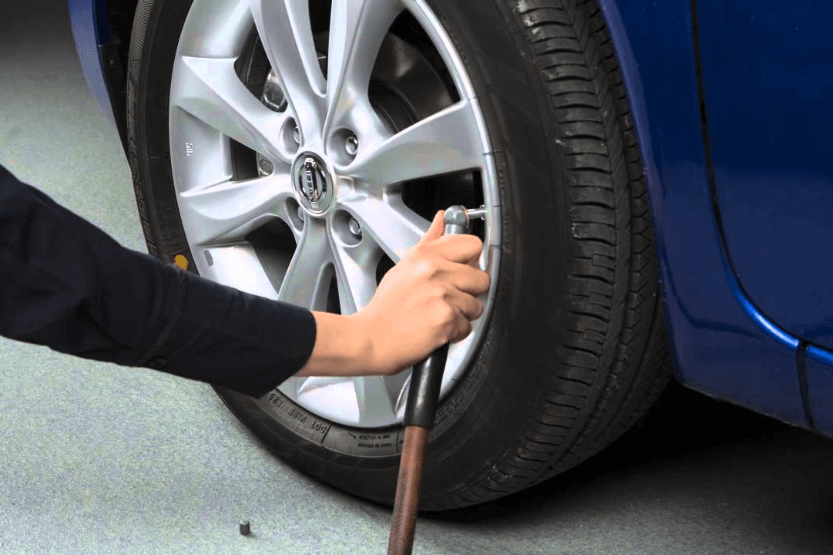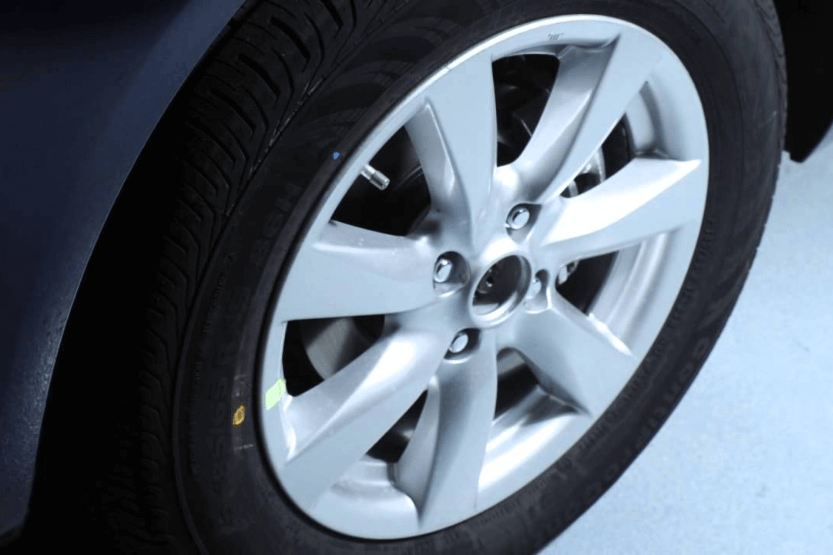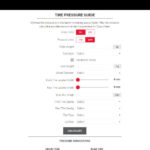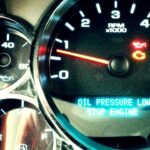The Nissan Versa is a popular subcompact car that has been in production since 2006. One of the most important aspects of maintaining a Nissan Versa is ensuring that the tires are properly inflated. Proper tire pressure is essential for safety, fuel efficiency, and overall vehicle performance.
The recommended tire pressure for a Nissan Versa varies depending on the model year, trim level, and tire size. According to NissanPros.com, most Nissan Versa models from 2007 to 2021 are recommended to apply 33 to 36 psi of tire pressure.
For the 2016 Nissan Versa, the recommended tire pressure is 33 psi for front tires and 33 psi for back tires. It is important to note that following the manufacturer’s recommended tire pressure can help ensure optimal performance and safety while driving.
Understanding Tire Pressure

Importance of Correct Tire Pressure
Tire pressure is the amount of air inside a tire, measured in PSI (pounds per square inch), bar, or kPa. It is an important factor that affects the safety, handling, fuel economy, friction, and heat of a vehicle.
Maintaining the correct tire pressure is crucial for ensuring maximum performance, longevity, and safety of the tires.
Driving with underinflated or overinflated tires can lead to a variety of problems. Underinflated tires can cause poor handling, increased stopping distance, and reduced fuel economy.
Overinflated tires can cause a harsh ride, reduced traction, and uneven tire wear. In both cases, the tires are more prone to damage and failure, which can result in accidents.
Measuring Units: PSI, Bar, and KPa
Tire pressure can be measured in different units, depending on the country and region. The most common units are PSI, bar, and kPa. PSI is the standard unit used in the United States, while bar and kPa are more commonly used in Europe and Asia.
- PSI – Pound per Square Inch: A unit of pressure commonly used in the United States. It represents the amount of pressure exerted by one pound of force on one square inch of area. The recommended tire pressure for a Nissan Versa is 32 PSI for the front tires and 30 PSI for the rear tires.
- Bar: A metric unit of pressure equal to 100 kPa. One bar is roughly equal to one atmosphere. The recommended tire pressure for a Nissan Versa is 2.2 bar for the front tires and 2.1 bar for the rear tires.
- KPa – Kilopascal: A metric unit of pressure commonly used in Europe and Asia. It represents the amount of pressure exerted by one newton of force on one square meter of area. The recommended tire pressure for a Nissan Versa is 220 kPa for the front tires and 210 kPa for the rear tires.
It is important to note that the recommended tire pressure may vary depending on the model and year of the Nissan Versa. Always check the vehicle’s owner’s manual or the tire placard (usually located inside the driver’s door) for the recommended tire pressure levels.
Nissan Versa Tire Specifications
When it comes to tire specifications, the Nissan Versa has specific requirements that owners should be aware of. Understanding the original equipment tire size, tire size type and speed rating, and tire load index can help drivers maintain the safety and performance of their vehicle.
Original Equipment Tire Size
The original equipment tire size for the Nissan Versa varies depending on the model year and trim level. For example, the 2021 Nissan Versa S Plus comes equipped with P185/65R15 86H tires, while the 2020 Nissan Versa SV has P205/55R16 91H tires.
It is important to check the owner’s manual or the tire information placard located on the driver’s side door jamb to determine the correct tire size for a specific Nissan Versa model.
Tire Size Type and Speed Rating
In addition to the tire size, the Nissan Versa also has specific requirements for tire size type and speed rating. The tire size type refers to whether the tire is a standard metric tire or a P-metric tire. The speed rating indicates the maximum speed that the tire can safely handle.
For example, the 2021 Nissan Versa S Plus comes equipped with P185/65R15 86H tires, which are P-metric tires with a speed rating of H (130 mph). The 2020 Nissan Versa SV, on the other hand, has P205/55R16 91H tires, which are also P-metric tires with a speed rating of H (130 mph).
Tire Load Index
The tire load index is another important specification to consider when selecting tires for a Nissan Versa. This number indicates the maximum weight that a tire can safely carry. The higher the number, the greater the weight capacity of the tire.
For example, the P185/65R15 86H tires on the 2021 Nissan Versa S Plus have a load index of 86, which means they can safely carry up to 1,168 pounds per tire.
The P205/55R16 91H tires on the 2020 Nissan Versa SV have a load index of 91, which means they can safely carry up to 1,356 pounds per tire.
Overall, understanding the tire specifications for a Nissan Versa can help drivers maintain the safety and performance of their vehicle.
It is important to select tires that meet the original equipment tire size, tire size type and speed rating, and tire load index requirements for a specific Nissan Versa model.
Yearly Tire Pressure Guidelines

Maintaining the correct tire pressure is essential to ensure safety, prolong tire life, and improve fuel efficiency. The recommended tire pressure for a Nissan Versa varies based on the model year, trim, and original equipment tire size. Here are the yearly tire pressure guidelines for Nissan Versa:
2010-2014 Nissan Versa Tire Pressure
For Nissan Versa models from 2010 to 2014, the recommended tire pressure is 33 psi for front tires and 33 psi for rear tires, according to Nissan Pros.
However, Correct Tire Pressure suggests that the tire pressure range for these models is between 34P/2.34B/234K to 37P/2.55B/255K, depending on the tire size and year of purchase. Nissan Versa is available in different six trim levels, and each trim level has six stock tire sizes.
2015-2019 Nissan Versa Tire Pressure
For Nissan Versa models from 2015 to 2019, the recommended tire pressure is 33 psi for front tires and 32 psi for rear tires, according to TirePressure.org.
However, Correct Tire Pressure suggests that the tire pressure range for these models is between 34P/2.34B/234K to 37P/2.55B/255K, depending on the tire size and year of purchase. Nissan Versa is available in different six trim levels, and each trim level has six stock tire sizes.
2020-2022 Nissan Versa Tire Pressure
For Nissan Versa models from 2020 to 2022, the recommended tire pressure is 33 psi for front tires and 33 psi for rear tires, according to TirePressure.org.
However, Correct Tire Pressure suggests that the tire pressure range for these models is between 34P/2.34B/234K to 37P/2.55B/255K, depending on the tire size and year of purchase. Nissan Versa is available in different six trim levels, and each trim level has six stock tire sizes.
It is important to note that tire pressure should be checked at least once a month and before long trips. The tire pressure should be checked when the tires are cold, and the recommended tire pressure should be followed, as overinflation or underinflation can affect tire performance and safety.
It is also recommended to use a tire pressure gauge to ensure accurate readings.
Maintaining Optimal Tire Pressure

Maintaining optimal tire pressure is essential for the safety and performance of your Nissan Versa. Proper tire pressure ensures better handling, improves gas mileage, and extends the life of your tires.
In this section, we will discuss how to check and adjust tire pressure, and the effects of weather on tire pressure.
Checking Tire Pressure
To check tire pressure, you will need a tire pressure gauge. The recommended tire pressure for a Nissan Versa varies depending on the model and year. Always check your vehicle’s owner’s manual for the recommended tire pressure levels.
The recommended tire pressure for a Nissan Versa is typically around 32 psi for the front tires and 30 psi for the rear tires.
To check the tire pressure, remove the valve cap from the tire, and press the tire pressure gauge onto the valve stem. The gauge will display the pounds per square inch (psi) of air pressure in the tire.
Compare the reading with the recommended tire pressure levels. If the reading is below the recommended level, add air to the tire.
Adjusting Tire Pressure
To adjust tire pressure, you will need a tire inflator or an air compressor. First, remove the valve cap from the tire, and press the tire pressure gauge onto the valve stem to check the current tire pressure.
If the reading is below the recommended level, attach the tire inflator or air compressor to the valve stem and add air to the tire. Keep checking the tire pressure until it reaches the recommended level.
Be careful not to overinflate the tire. Overinflated tires can lead to reduced traction and premature wear on the tire’s center.
Effects of Weather on Tire Pressure
Weather temperatures can affect tire pressure. In cold weather, tire pressure can decrease by 1 psi for every 10-degree drop in temperature. In hot weather, tire pressure can increase by 1 psi for every 10-degree rise in temperature.
It’s essential to check tire pressure regularly and adjust it as needed, especially during extreme weather conditions. Maintaining optimal tire pressure not only ensures your safety but also improves your Nissan Versa’s performance and gas mileage.
In Summary
Maintaining the correct tire pressure is crucial for the Nissan Versa’s safety, fuel efficiency, and performance. The recommended tire pressure for the Nissan Versa varies depending on the year, model, and tire size.
According to the search results, the recommended tire pressure for Nissan Versa models from 2007 to 2021 ranges from 33 to 37 PSI, depending on the tire size and year of purchase.
The 2016 Nissan Versa, for example, has a recommended tire pressure of 33 PSI for front tires and 33 PSI for back tires.
It is important to note that the recommended tire pressure may differ from the maximum tire pressure indicated on the tire sidewall.
It is crucial to follow the manufacturer’s recommended tire pressure to avoid overinflation or underinflation, which can lead to uneven tire wear, poor handling, and reduced fuel economy.
Regularly checking and adjusting the tire pressure can help extend the life of the tires and improve the Nissan Versa’s overall performance. It is recommended to check the tire pressure at least once a month and before long trips. A tire pressure gauge can be used to measure the tire pressure accurately.
Overall, maintaining the correct tire pressure is a simple yet essential aspect of Nissan Versa maintenance that can improve safety, fuel efficiency, and performance.


![Tire Pressure Sensor Fault [Causes and How to Fix] tire pressure sensor fault](https://roadsumo.com/wp-content/uploads/2021/09/tire-pressure-sensor-fault-150x150.jpg)
![Are Nissan Altimas Good Cars? [Nissan Altima Reliability] are nissan altimas good cars](https://roadsumo.com/wp-content/uploads/2022/04/are-Nissan-Altimas-good-cars-150x150.jpg)
![Low Tire Pressure Light On But Tires Are Fine [Why Is This?] low tire pressure light on but tires are fine](https://roadsumo.com/wp-content/uploads/2021/07/low-tire-pressure-light-on-but-tires-are-fine-150x150.jpg)




![Read more about the article SCS Ray10 Wheels [Specs and Review]](https://roadsumo.com/wp-content/uploads/2022/12/SCS-Ray10-wheels-300x200.jpg)